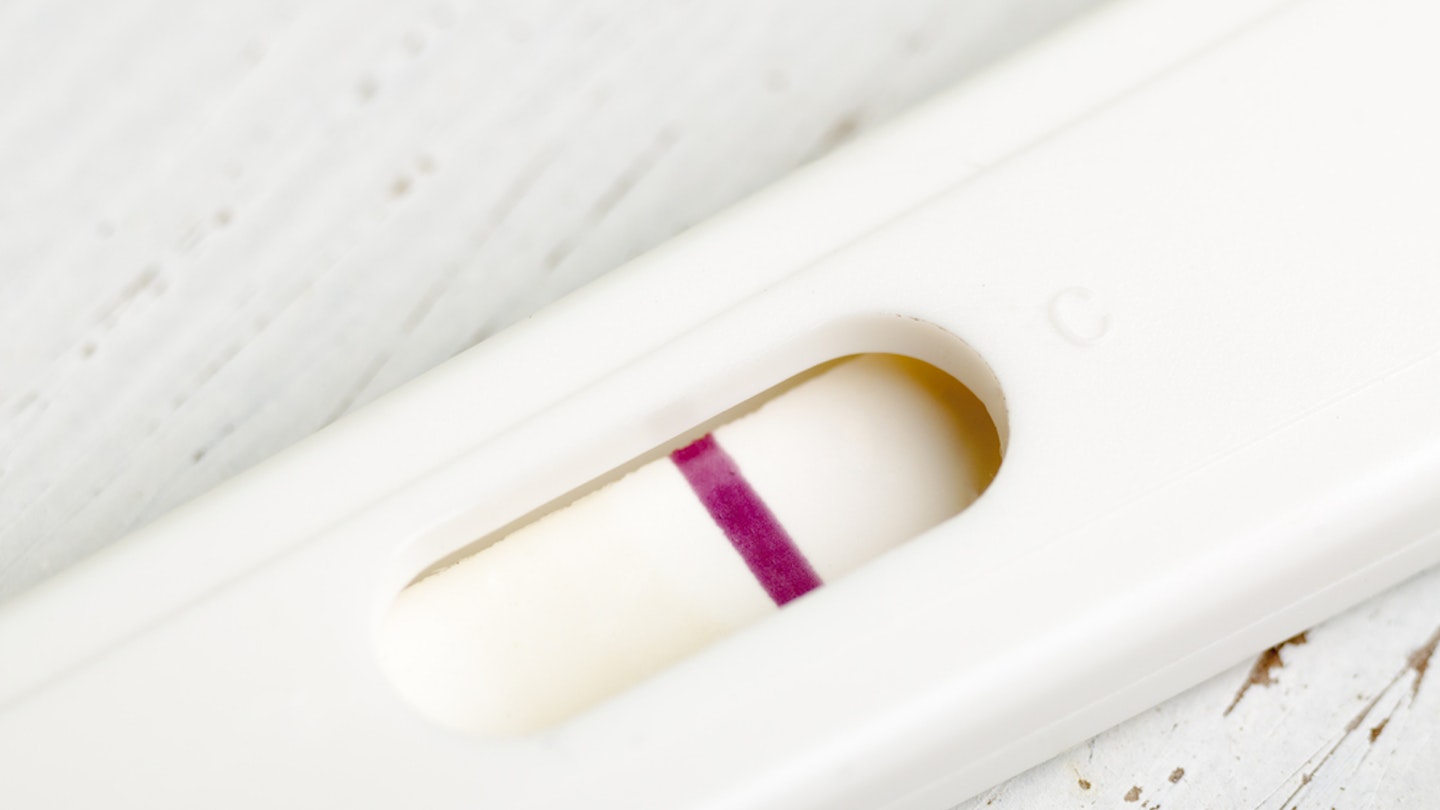It's easy to mistake nausea and tiredness for the early signs of pregnancy and rule it out by taking a pregnancy test – but for some women, the symptoms are so compelling they begin to believe they are pregnant even when they are not after receiving a negative pregnancy test result. We take a closer look at the rare condition of false pregnancy, aka phantom pregnancy.
What is a false or phantom pregnancy?
False pregnancy or pseudocyesis (from the Greek ‘pseudes’ meaning false, and ‘kyesis’ meaning pregnant) is when a woman believes she is pregnant and experiences some of the symptoms, but tests prove she isn’t actually carrying a baby. It tends to affect older women, and can last for weeks, months – commonly nine months – or even years, depending on the severity of the condition.
What are the symptoms of a false pregnancy?
A woman with pseudocyesis will often present with physical changes that mimic pregnancy such as:
phantom pregnancy symptoms
 1 of 5
1 of 51) A bloated or distended tummy
If you suspect you may be pregnant, the first thing you might be tempted to do is look at your stomach for any signs of a little bump. This may however just be some bloating, and although it's uncomfortable, it might not be pregnancy.
 2 of 5
2 of 52) Nausea
One of the earliest signs of pregnancy is morning sickness. This sickness and feelings of nausea won't just be in the morning however, it can impact you at any time of the day.
 3 of 5
3 of 53) Tender breasts
It's normal to experience breast tenderness throughout your menstrual cycle, and this can be impacted by hormones.
 4 of 5
4 of 54) Irregular or missed periods
While no signs of your period may make you automatically think you're pregnant, it may not be the case. Some women experience no periods with a negative pregnancy test. There are a whole range of reasons for this, and it's definitely worth contacting your GP if this is not normal for you.
 5 of 5
5 of 55) Some women might even suggest they can feel fetal movements
Although it's rare, some women may even believe they can feel movements in their abdomen.
How common are phantom pregnancies?
Cases of false pregnancy have been recorded throughout history, most notably by Hippocrates, who documented 12 cases, and it is thought that Queen Mary Tudor also experienced two false pregnancies. The condition is more common in dogs and mice, with dogs suffering from ’pseudopregnancy’ whereby they attach themselves to cuddly toys as if they were puppies.
Today, false pregnancy is considered a very rare condition, with pseudo pregnancies affecting only one in six out of every 22,000 human births in the U.S, with no concrete figures for the UK.
“In the 20 years I have been practising I have only seen three cases,” says Dr Trudi Seneviratne, chair of the perinatal faculty at the Royal College of Psychiatrists. “It was more common in the 19th century when people were more prone to hysterical episodes, but with medical advancements and pregnancy tests it has become less common.”
In even rarer cases, the strength of the beliefs can influence the endocrine system so the body actually begins to secrete pregnancy hormones, which causes a feedback loop that sustains the belief.
What are the main causes of a phantom pregnancy?

It is still unclear the complex reasons behind the condition but in most cases there is a strong emotional and psychological cause. It tends to emerge in women who are desperate to conceive, who have undergone fertility treatment or have experienced trauma, such as losing a baby due to miscarriage or stillbirth, and those who have a history of abuse, depression or anxiety.
“False pregnancy is normally always down to delusions brought about by psychosis. It often affects women who for whatever reason can’t have a baby but desperately want one and this is the manifestation of that anxiety,” says Dr Seneviratne. “The woman genuinely feels like she is expecting, and the brain tricks the woman into feeling the symptoms. It just goes to show how powerful the brain is. In one case I dealt with, a woman also presented with phantom symptoms of other conditions too, such as heart disease.”
How is a phantom pregnancy diagnosed?
Dr Seneviratne says: “We usually do a urine dipstick test to check for pregnancy and in some cases, where the patient needs more convincing, an ultrasound. We would do a complete mental health check-up to see if the woman has a history of depression, anxiety or psychosis, and we would take into account the family history too.”
How do you treat a phantom pregnancy?
There is no specific treatment or medication for false pregnancy but finding out you are not pregnant, when you are convinced you are expecting, can be devastating for those involved. Sensitivity and understanding is crucial.
“We would treat the condition eclectically with antipsychotic medication, if appropriate, and also counselling,” says Dr Seneviratne. “Talking therapy is very useful for identifying the reasons behind the woman’s convictions.”
